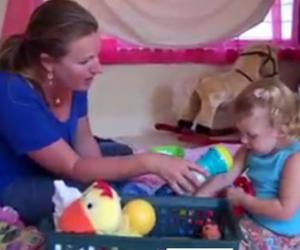Autism Therapist Omaha NE
Early Intervention, Support Organization, Therapy Providers, Training/Seminars

Omaha, NE
Training/Seminars

Omaha, NE
Support Organization

DAN! Pediatrics, Medical

Disability Advocacy, Other

Autism, Child or Adolescent, Coping Skills, Elderly Persons Disorders
Qualification
School: Bellevue University
Year of Graduation: 2011
Years In Practice: 1 Year
Patient Info
Ethnicity: Any
Gender: All
Age: Toddlers / Preschoolers (0 to 6),Children (6 to 10),Preteens / Tweens (11 to 13),Adolescents / Teenagers (14 to 19),Adults,Elders (65+)
Average Cost
$50 - $80
Payment Methods
Sliding Scale: No
Accepts Credit Cards: Yes
Accepted Insurance Plans: BlueCross and/or BlueShield
Omaha, NE
Disability Advocacy

Disability Advocacy, Support Organization

Omaha, NE
Support Organization, Training/Seminars

Disability Advocacy, Support Organization


For Children with Autism, a New Possibility for Treatment
For children with autism, a new possibility for treatmentLeonora LaPeter AntonJoy Falahee thought she knew how to play with her 2-year-old, Alexa. There she was holding a plastic microphone, pretending to talk to Alexa. There she was offering a tiny zebra for Alexa to put in a brown plastic boat. But when she looked back later at video of her and Alexa playing, Joy realized it was all wrong. Alexa barely looked at her. Alexa wanted nothing to do with her. Alexa has autism. Joy, 32, received her daughter's diagnosis four months ago. Research says that by age 5, children's brains are mostly formed. Alexa's doctor told Joy and her husband, Tom, that they have only a few years to draw Alexa out. She and Tom, a manager at CVS, have spent $70,000 to get her help. Occupational therapy. Physical therapy. Even horse therapy. But recently they found another way to help Alexa, one that will require hours on a blanket with Alexa and a tub of toys. • • • Joy suspected autism early on. Alexa was 18 months old when she stopped saying ma-ma and da-da. She started screaming whenever they left the house. She refused to be touched. Joy, a former opera singer and voice coach, sought out specialists and seminars. She realized that the symptoms of autism described Alexa. Children with autism sometimes don't talk or interact. They don't like to be touched or held. They have trouble understanding other people's feelings. They need lots of one-on-one therapy — up to 25 hours a week. Joy and Tom, 34, enrolled Alexa in free federally funded child development services and took her to every therapy they could find. They moved from Tampa Palms to St. Petersburg to be closer to doctors and therapists at All Children's Hospital. The traditional therapies were designed to help Alexa learn to talk, build upper-body strength, allow her parents to brush her teeth. They were built on positive reinforcement: If Alexa did what she was told, she got a reward. But Joy knew one of Alexa's biggest challenges would be her ability to socialize. Her daughter never looked at people. She always played alone. Was there a way to make her daughter at least give her a hug? • • • One day in March, Suzanne Tredo, an early interventionist with a background in autism, arrived at Joy's home in St. Petersburg. Suzanne went up to Alexa, who was fitting animal-shaped pieces into slots in a wooden board. She picked up a piece and offered it to Alexa. Alexa got up and walked away. Later Suzanne tried again. Alexa ignored her. But then, for less than a second, Alexa's little blue eyes caught Suzanne's. "You need to build a relationship with your daughter," she said. "To do that, you must get her to look you in the eye." Joy thought about her interactions with Alexa, how fleeting they were. Unless she needed something, Alexa didn't care if Joy was there or not. Not one bit. In the spring, Suzanne traveled to Ann Arbor, Mich., for a unique training in autism ... |
Click here to read the rest of this article from Autism Support Network


